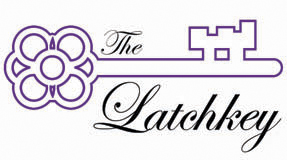Latchkey Home Book Reviews Essays Call for Papers Announcements Teaching Resources Featured New Women
New Women: Who's Who GalleryThe Whine Cellar
Bibliography
Contact us

|
|
ANNOUNCEMENTS
1. Book and journal publications of interest:
Elizabeth Otto and Vanessa Rocco are co-editors of a new anthology entitled The New Woman International: Representations in Photography and Film from the 1870s through the 1960s (Ann Arbor: University of Michigan Press, 2011).
“Images of flappers, garçonnes, Modern Girls, neue Frauen, and trampky—all
embodiments of the dashing New Woman—symbolized an expanded public role
for women from the suffragist era through the dawn of 1960s feminism.
Chronicling nearly a century of global challenges to gender norms, The New
Woman International: Representations in Photography and Film from the
1870s through the 1960s is the first book to examine modern femininity's
ongoing relationship with the nineteenth and twentieth centuries' most
influential new media: photography and film.” Contributors include Linda Nochlin, Jan Bardsley, Matthew Biro, Gianna Carotenuto, Melody Davis, Kristine Harris, Karla Huebner, Kristen Lubben, Maria Makela, Elizabeth Otto, Martha H. Patterson, Vanessa Rocco, Clare I. Rogan, Despina Stratigakos, Brett M. Van Hoesen, Kathleen M. Vernon, and Lisa Jaye Young. For further details, please click here
Petra Dierkes-Thrun (one of The Latchkey’s co-editors) has just published Salome’s Modernity: Oscar Wilde and the Aesthetics of Transgression (Ann Arbor: University of Michigan Press, 2011).
The book chronicles and analyzes the Salome figure in literature, opera, film, dance, and popular culture from the 1860s to today, focusing on the role of erotic and aesthetic transgression in the wake of Oscar Wilde’s 1891 Symbolist play Salomé. Cultural images such as the femme fatale, the New Woman, and the male homosexual, as well as intersections between feminist and LGBTQ studies, receive special consideration. Chapters include 1. Dancing on the Threshold: Wilde’s Salomé between Symbolist, Decadent, and Modernist Aesthetics; 2.‘The Brutal Music and the Delicate Text’? Richard Strauss’s Operatic Modernism in Salome; 3. Perverts in Court: Maud Allan’s Vision of Salome and the Pemberton-Billing Trial; 4. Alla Nazimova’s Salome: An Historical Phantasy After the Play by Oscar Wilde; and 5. Portraits of the Artist as a Gay Man and Salomé as a Feminist Icon: Wilde and Salomé in Popular Culture since the 1980s.
Further details at http://press.umich.edu/titleDetailDesc.do?id=1979616.
Christine Pullen (who writes for us in this issue, see Featured New Women section) published a biography of Amy Levy, The Woman Who Dared: A Biography of Amy Levy, (Kingston University Press, 2010).
See http://fass.kingston.ac.uk/kup/publications/amy-levy/ and the review in The Jewish Chronicle Online at http://www.thejc.com/arts/books/44474/the-woman-who-dared-a-biography-amy-levy.
A new anthology was published recently by Peter Lang: What is a Woman to Do?: A Reader on Women, Work, and Art, c. 1830-1890, edited by Kyriaki Hadjiafxendi and Patricia Zakreski (2011). This anthology traces debates about aesthetic and economics in nineteenth-century writings on literature, the visual arts, performance, and craftsmanship.
Notable topics include “Negotiating the Domestic Ideal,” “The Feminine Aesthetic,” “From Pastime to Profession,” and “Fame, Reputation, and the Public Woman.” See http://www.peterlang.com for more information.
A new edition of ‘Notable Women Authors of the Day' by Helen C. Black has been published by Victorian Secrets. First published in 1893, the book is comprised of a series of interviews by 30 featured authors, exploring the Victorian woman writer and the balance between their personal and professional lives. The new edition contains a preface by Troy J. Basset, critical information, and explanatory footnotes.
Noah Comet announces the publication of a new issue of Women's Studies (40.4, 2011) on the topic of nineteenth-century women writers and the classical
inheritance.
2. Digital Initiatives:
The University of Pittsburgh has an interesting online resource of dissertations published on the subject of the medical humanities, some of which may be useful in studies of Victorian womanhood.
See http://www.hsls.pitt.edu/histmed
3. Websites of interest:
The Edwardian Promenade focuses on the social and political history of the United States and Great Britain from the years 1880 to 1914. It features interviews, magazines, book reviews, and discussions about history. An engaging and informative source, it can be visited at http://edwardianpromenade.com/.
Lesley A. Hall, historian and archivist, offers a treasure trove of resources on Victorian Medical and Psychiatric History. Topics cover the history of sexuality, women’s history, and science fiction and fantasy. Further details are at
www.lesleyahall.net and lesleyahall.blogspot.com.
Ellen Moody has begun a blog focusing on women’s poetry.
It can be read at http://ellenandjim.wordpress.com/category/foremother-poetry/.
4. Other Announcements:
De Montfort University, Leicester’s English Department is offering a PhD studentship for those studying the Victorian and Modern Periodical (c. 1837-1939). Students from the UK and EU are invited to apply. In addition to tuition, the student is provided with a bursary of £13,770 pa. For a more detailed description of the studentship project please visit the web site, http://www.iesd.dmu.ac.uk/vacancies, or contact Dr. Deborah Mutch at dmutch@dmu.ac.uk.
King’s College, London is beginning a new MA programme in 19th Century Studies at King's College London, to begin in September 2011. The MA will be taught across the English, History and Geography departments at King's. A key feature of the course is the internship programme which enables students to undertake research in specific 19th-century-related institutions. One bursary of £6000 is available for applicants intending to enter the degree in 2011.
To apply, please visit their website. For any questions please contact Dr Niall O’Flaherty by email at niall.o'flaherty@kcl.ac.uk.
|

